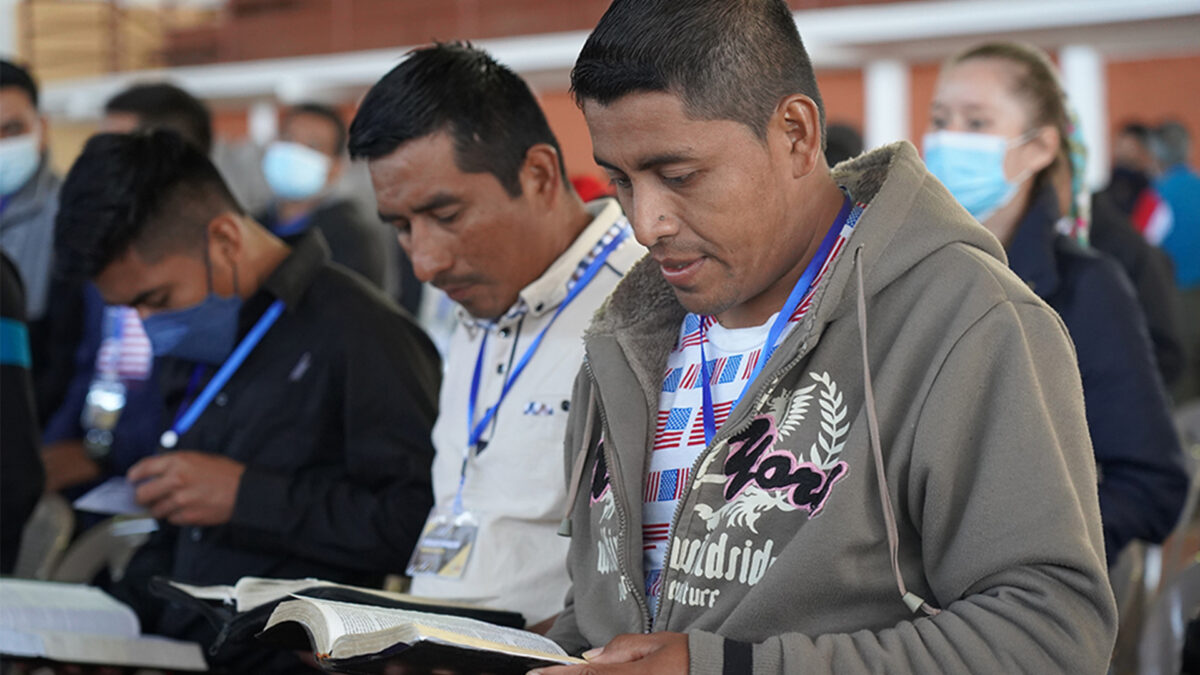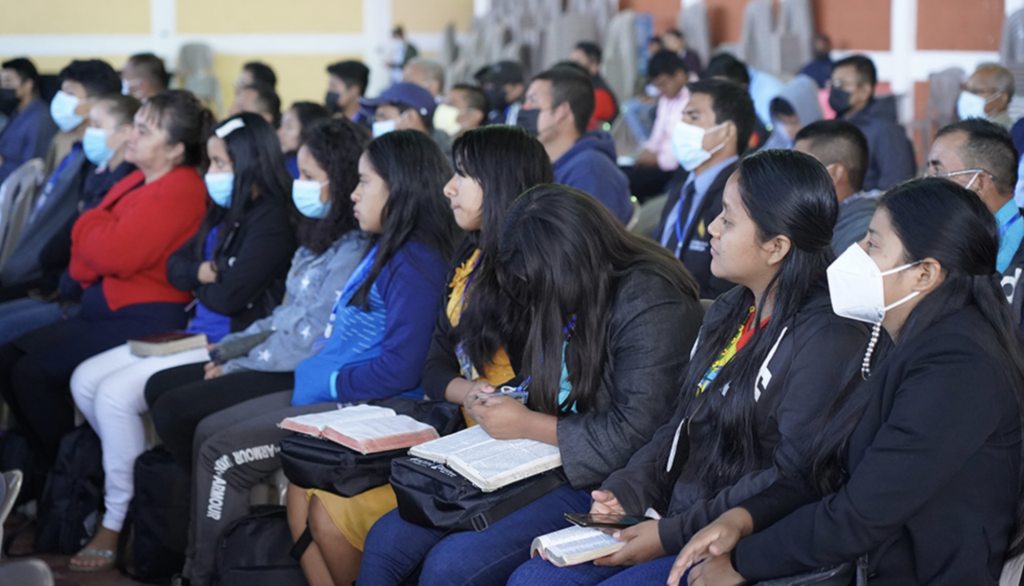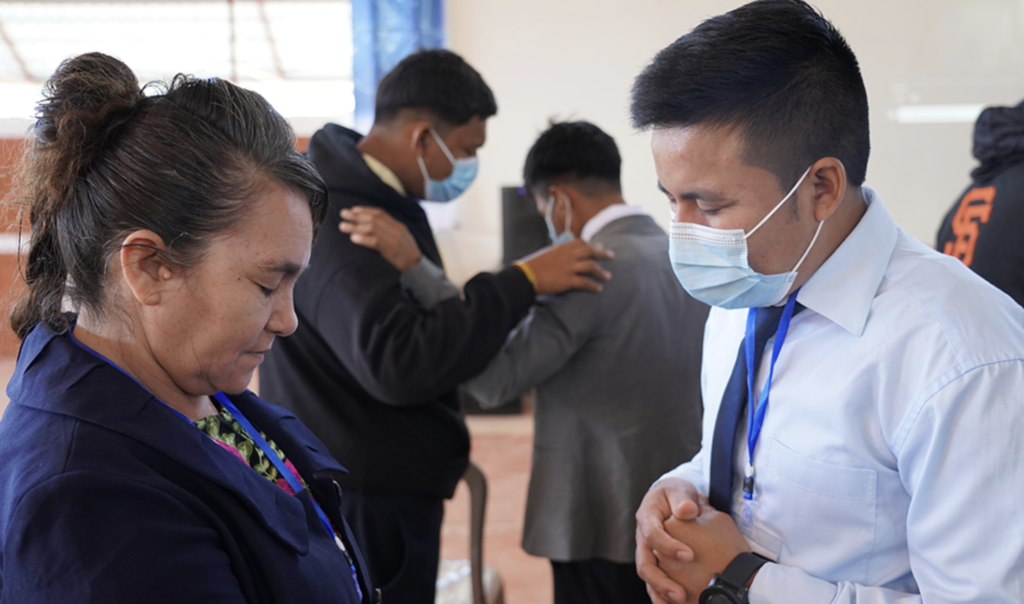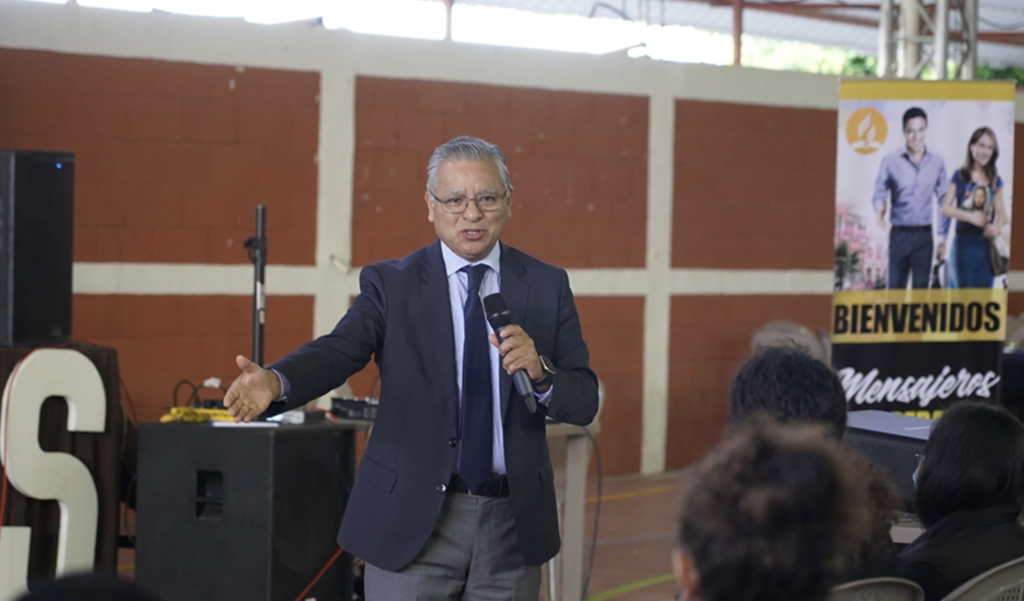Launch of first national training school likely to help ministry rebound, leaders say.

After challenges, policy changes, and a dwindling number of literature evangelists that affected the publishing ministries in the Seventh-day Adventist Church in Guatemala, church leaders gathered to re-establish a permanent literature evangelism school. More than 150 literature evangelists and active church members met to be equipped, inspired, and recommitted to spreading the gospel through books and publications in their communities during a recent four-day event in Chiquimula, Guatemala.
The new literature evangelism training school, coined “Messengers of Hope,” drew the group, mostly comprising dozens of new, interested members who want to become full-time or part-time literature evangelists in the country. They were challenged to be the force that will strengthen publishing ministries, working closely with pastors in the mission of evangelizing thousands of people who need hope and salvation in Jesus.

“I know the church will benefit greatly with this army of workers prepared to enter new territories,” Guenther García, president of the Adventist Church in Guatemala, said. There have been many talks with the administrators and department leaders at each of the eight conferences and missions revising policies as well as benefits that literature evangelists will be eligible to receive, García said.
Looking Back
“It had been 10 years since we had organized a national school of literature evangelists,” García said. Some regional events were held sporadically, but because literature evangelists in Inter-America were taken out of the retirement-benefits system on behalf of regional arrangements, many lost interest, he explained.
Twenty years ago the church in Guatemala had approximately 150 literature evangelists. Fifty of them were full-time workers, while the rest worked occasionally. This included some students as well, Moises Vidal, publishing ministries director for the Adventist Church in Guatemala, said. “Lately, Guatemala had only 25 part-time literature evangelists left, but now we have a total of 150 enrolled.”
A new system is now in place. Each field will work closely to mentor and train literature evangelists on the job in coordinated efforts with the Inter-American Division’s Publishing Association (IADPA), Vidal said. The plan will also see each district pastor help recruit a layperson or a professional to work as a literature evangelist there, Vidal explained. The church also wants to recruit some 200 student literature evangelists before the end of the year, leaders said.
Looking Forward
“Our goal is to have a literature evangelist in each of the districts with credentialed gold status so they can be eligible for retirement benefits,” Vidal said. “Because we didn’t have a strong publishing system established . . . there wasn’t a clear plan for the new literature evangelists.” Now the task is to move forward with the new plan and ensure that literature evangelists are clear on their mission as they go out and connect with and minister to every home they visit.
It’s about forming a new generation of literature evangelists as missionaries and not as merely salespersons as many had thought, Vidal said.
With the church throughout the country focused on strengthening its publishing ministries, leaders aim to ensure that regional literature evangelist schools are established within the next six months and that more literature evangelists can be recruited, so each of them can reach more homes every day.
New Policies
Isaías Espinoza, publishing ministries director for the Adventist Church in the Inter-American Division (IAD), congratulated church leaders and the newly enrolled literature evangelists for accomplishing what other fields across the territory still need to do.
“The Inter-American Division recently established new policies, whereby new literature evangelists can be classified as licensed and credentialed and be eligible to fall under the benefit plan of the church,” Espinoza said. The retirement benefit plan will draw funds from IAD, IADPA, the union, and the local field each year to assist eligible literature evangelists with their basic expenses and retirement benefits, Espinoza explained.

“Since the Adventist Church in Guatemala adopted new policies, it has seen a renewed interest from leaders and members to become ‘messengers of hope.’”
It’s all about sharing awareness that the literature evangelist is not just a salesperson visiting homes and selling magazines or books. “He or she is a messenger of hope, who can become self-employed while he is ministering,” Espinoza said.
Entering New Territories
Espinoza praised the goals of literature evangelists in the Central American country who will strive to visit 25 homes every day. That means, ideally, that 150 literature evangelists will visit 3,700 homes per day, or 112,500 homes every month.
“What an extraordinary move by the Adventist Church in Guatemala today,” Espinoza said.
The event saw IADPA leaders share family, spiritual, health, and self-help books, as well as incentives and new projects to assist literature evangelists in their mission to be messengers of hope.
“This goes back to how it used to be for literature evangelists,” Espinoza said. “Literature evangelists are a huge blessing for fulfilling the mission. They assist the church in entering new communities, lead Bible studies and evangelistic efforts, and establish small groups so that people can accept Jesus as their Savior,” he explained.

“Guatemala has been a launching pad, and we hope that the rest of the unions will follow in establishing stronger publishing ministries so that literature evangelists can continue to fulfill the mission of sharing the hope of salvation,” Espinoza said.
With 1,800 active literature evangelists in Mexico and 1,330 more throughout the IAD territory, leaders said their goal is to enlist more than 5,000 literature evangelists by 2025.
Gustavo Menéndez contributed to this report.
The original version of this story was posted on the Inter-American Division news site.








